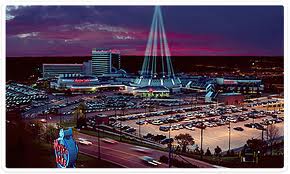An allodial title constitutes ownership of real property that is independent to any superior power. In the Middle Ages, allodial titles were sometimes granted: these people obtained land without feudal duties (i.e. taxes). Here is the definition of ‘allodial’ in Black’s Law Dictionary.
“Land held absolutely in one’s own right, and not of any lord or superior; and not subject to feudal duties or burdens.”
Limited allodial title on land
When property is held in allodium, things like building permits, property taxes, and by-laws do not apply. The property is owned free and clear from EVERYONE (banks, government, monarchs, etc.) This form of ownership no longer exists in North America. However, the State of Nevada had a limited form of allodial title until it was abolished in 2005. Native Americans still have a limited form of allodial title to their land. This is the reason why they do not pay taxes on their property. Businesses that operate and have their activities on reservations probably do not pay as well, including corporate taxes such as the casinos. However, despite their limited allodial title and low tax environments, most Native American reservations do relatively poorly. Why? Their limited allodial title is not in the property owner’s name; instead, it is held communally. In the end, they have no property rights: everything is technically owned communally, therefore making it very difficult to access financing and pledge their house or business as collateral. Reservations are considered to be separate sovereign nations and enforcing contracts in an American court would be a very hard task.
Reservations can still be successful tax havens for Native Americans
One successful tribe in the US, the Shakopee Mdewakanton Tribe in Minnesota, is noted to be the richest Native American reservation on American soil. The tribe owns their own casino, resort, and hotel, and has revenues in the billions. The population of this tribe is approximately 460 people; the dividend to every adult in this tribe is $84,000/month or $1 million a year, whether they work or not. Work in this tribe is voluntary, and the unemployment rate is over 90%. A few reservations have reached this status, however most have not. Why? It is difficult when there is little access to capital as no one individual can pledge his or her own property as collateral. Much of this will be done through hard work, profits re-invested and help from other tribes in order to get to this status. Frankly, most reservations simply don’t put in the hard work to do this, why? no incentive. The government has just about every social program out there for them; it is pure socialism. Instead, reservations like the Shakopee Mdewakanton have few government interventions and therefore have thrived on a more capitalist model.
If there were a way to opt-out and grant an allodial title to your land, you would not pay any taxes on your home much like on reservations, however you also would not be able to pledge your home as collateral via the traditional routes. Access to traditional bank financing would be nearly impossible, but if you had other means (i.e. family) you could create a very profitable enterprise much like Mystic Lake Casino. Allodial title lands would create competition for non-allodial lands, thus reducing property taxes, and a surge in job creation–something we desperately need. Corporations, instead of going offshore, could go into these special zones whereby they would be granted allodial status to spur domestic job creation.
Land Patents and Crown Land grant patents
There does exist some form of land patent which enables you to receive an agreement to which you possess and use the land in Canada and the US. In Canada, they are called Crown land grant patents. In the US, they are land patents. Michael Lamb, a University of Western Ontario law professor and an expert on real estate law, stated the following on the subject of Crown land grant patents:
“They do not transfer ownership of land but only grant the use and possession of the land. The Crown technically owns all land in Canada. This legal underpinning gives governments the right to assert a certain level of control over people’s private property.”
These land patent grants constitute a contract between the Crown and the landowner, a contract that originated more than 200 years ago when land was distributed to the first settlers. These contracts can give the landowner protection against invasive by-laws or legislation pertaining to their land. Nevertheless, whether they would stand up in court today is questionable.
What Lamb is saying is that even if you own your home free and clear with no mortgage, you still do not technically own your home. Try not paying your property taxes and you will quickly see who is the real owner of the land. Your property taxes is the fee you pay, much like the rent a tenant will pay to a landowner to occupy a home.
As the economic crisis worsens, expect the governments, in their economic desperation, to be increasingly more stringent on rules, regulations, and raising taxes in general, and on property owners in particular. In Canada and the US, there have already been several property tax increases. Don’t be surprised if more of this will come shortly. Property rights is a basic virtue that many of us take for granted, but there may be a hefty price to pay for being a land owner in the future–something that would be irrelevant if you obtained an allodial title on your land.
My next post will discuss the investments that actually contain an “allodial” title.
Reference
http://www.cra-arc.gc.ca/brgnls/stts-eng.html#hdng2
http://www.dailymail.co.uk/news/article-2187456/Shakopee-Mdewakanton-Tribe-Casino-revenue-pays-member-1million-year.html



